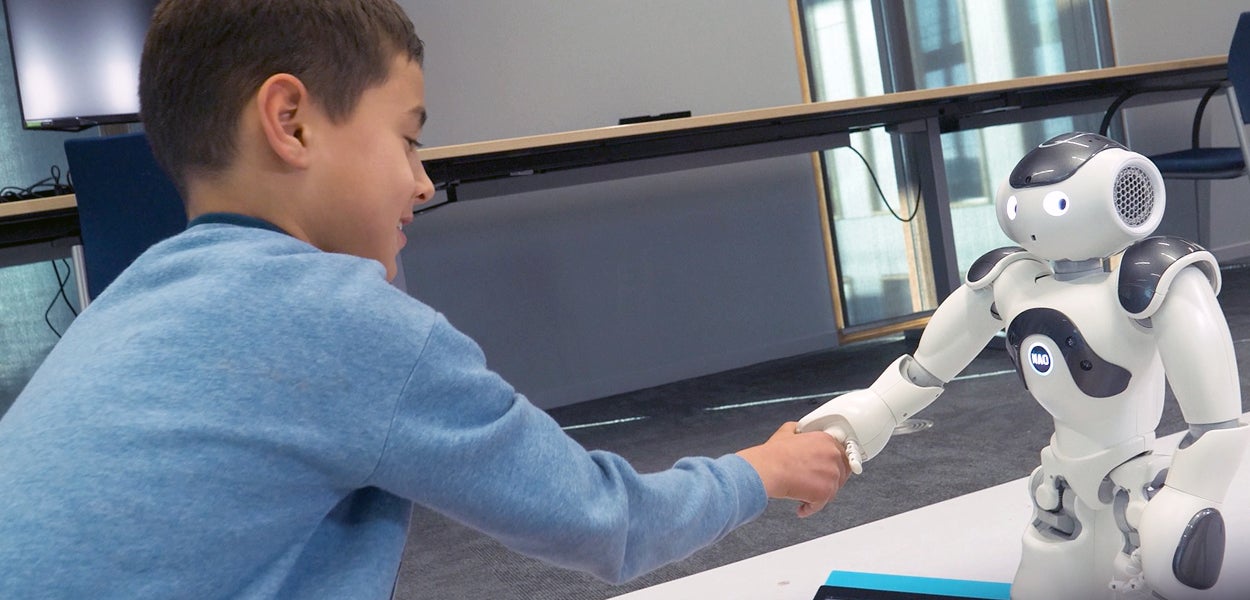Dutch students read less and less. This can cause them to experience problems at school and in society. Factors such as reading motivation and available support are important predictors of how well children read. Social robots are a promising tool in this regard, as previous research has shown.
Robot bookworm
The Robot Bookworm helps pupils find a suitable book that they can read independently. The robot has weekly conversations with the children about the reading process and the content of the book. The questions the robot asks are adapted to the content of the book and the interests and reading level of the pupil.
Interdisciplinary
The reading robot is a project of the Network Institute, the interdisciplinary research hub of VU Amsterdam. Mike Ligthart (Social AI), Lisa van der Sander (Pedagogical and Educational Sciences) and Nina Sangers (Language, Literature and Communication) are involved as researchers. They expect that the personalized approach will promote pupils’ reading motivation and ultimately their reading comprehension.
Personalized interaction
In the first phase of the project, the scientists will talk to students, teachers and library staff to map out the ideas and wishes about the use of reading robots at school. They also investigate the technical possibilities to personalize the interaction between child and robot. In the spring of 2024, participating primary school students will have the weekly conversations about their reading book with the robot, during which reading comprehension and reading motivation will be monitored.
Calculating robot
Artificial Intelligence scientist Ligthart has been researching the development of sustainable and inclusive child-robot interactions for some time. He specifically focuses on the question of how a robot can maintain a relationship with a child through a narrative conversation. Earlier this year he showed that children's arithmetic performance improved with the help of Hero, the math robot.
